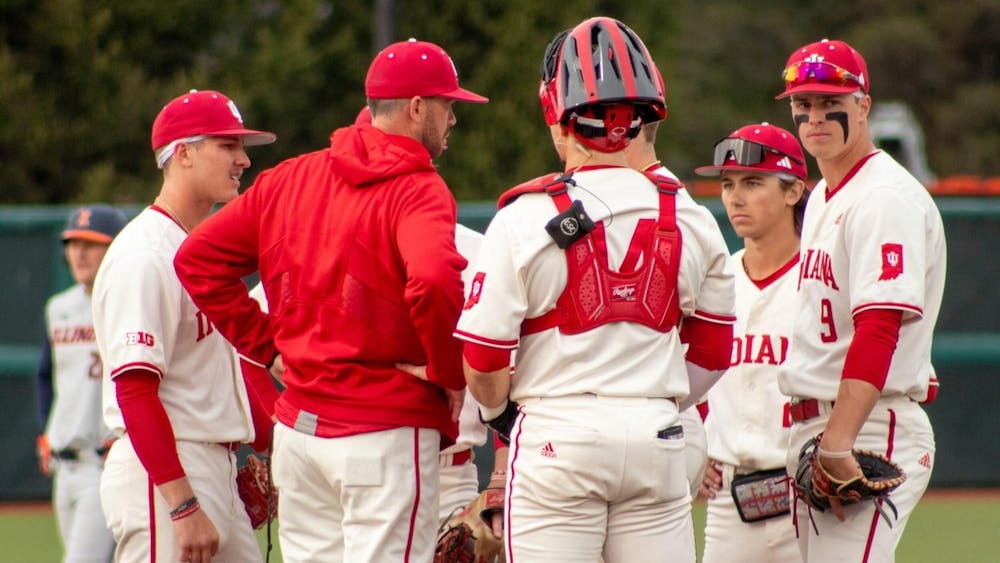EDINBURGH, Ind. -- Lt. Col. Jim Cotter has never been in a combat zone, but he knows war is serious business.\nHe sees the evidence in the eyes of the wounded in their hospital beds, in the face of a soldier whose 3-year-old son doesn't recognize her after her time in Afghanistan. It's painfully clear in the words of a soldier who is asked if he saw anyone die in Iraq and replies, "Yeah, my marriage."\nCotter, 55, witnesses war's toll regularly as the chaplain at Camp Atterbury, a key mobilization station for deploying Guard and reserve troops about 30 miles south of Indianapolis.\nBy year's end, an estimated 20,000 troops will have been through the Army post since the start of the Iraq war. Cotter, activated with the Indiana National Guard in early 2003, will have met with most of them.\nSex and intimacy, alcoholism, war flashbacks -- no topics are taboo. Cotter listens and advises, his messages blunt but kind and filled with thanks for the soldiers' service.\nDuring a recent briefing with a Michigan Army National Guard unit just back from six months in the Sinai Peninsula, Cotter tried to prepare soldiers for the adjustment to civilian life. The road ahead, he said, would be bumpy, and they shouldn't expect things to be as they once were.\n"You guys changed. Your family changed," Cotter says. "You can't expect to go back in time to where you were ... you just aren't the same."\nCotter likely won't be the same either when he returns to his parish at Praise Lutheran Church in Fort Wayne in February.\nThough he previously served in the active Army and Army reserves in Colorado, this deployment with the Indiana Guard has been one of the most intense periods of his life.\nDuring his first year at Camp Atterbury, Cotter married more than 40 couples. He has baptized countless soldiers. But his hardest job is listening to the fears of those preparing for battle -- or dealing with its aftermath.\n"It would tear you up if you didn't have God's promises," Cotter said. "And it does. There are nights that I cry. There are days I'm grouchy to be around."\nAngie Garcia, a counselor who works with Cotter, said she has yet to see that side.\n"He's a wonderful man. He's really funny and he has such a huge concern for soldiers," Garcia said. "He always has a smile."\nBut his wife, Donna Cotter, said the war has taken on a toll on her husband of 35 years.\nWith her husband's long hours and the three-hour distance between them, she is lucky to see Cotter once a month. But when they're together, she has noticed the fun-loving chaplain is more serious.\n"He hurts for the troops. All the things they have to deal with, their problems here at home and then when they're gone, things that they're facing," Donna Cotter said.\nCapt. Leslie Haines, 45, has been Cotter's assistant since December. \nShe first met Cotter when she arrived at Camp Atterbury after being medically evacuated out of Iraq because of neurological problems in her arms.\nShe's seen the lighter side of him, such as the time he hid a soldier's vehicle after she ignored repeated warnings to stop leaving her keys in the ignition.\nAnd she has seen him welcome soldiers into the chapel late at night for talks, even though he was on his way out after a long day.\n"He's constantly taking care of soldiers," Haines said. "I've never seen anyone put in that level of dedication."\nCotter says he is in the right place.\n"I miss my wife. I miss my families. I miss my church. But I know, without a doubt, this is what God's called me to do, right here," Cotter said.\nHis one regret is that he has only five days to spend with returning troops at Camp Atterbury before they head back to their civilian lives.\n"There's not one soldier that comes back whole, not one," Cotter said. "I know that when we send them home, they're not whole still"
Army chaplain bridges war, civilian life
Fort Wayne pastor juggles parish duties, helping soldiers
Get stories like this in your inbox
Subscribe





